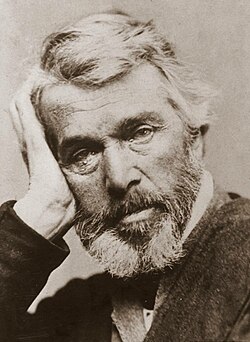Thomas Carlyle Quote
Related Quotes
For everything in this journey of life we are on, there is a right wing and a left wing: for the wing of love there is anger; for the wing of destiny there is fear; for the wing of pain there is heali...
C. JoyBell C.
Tags:
ancient, flight, flying, human race, humanity, imperfection, inspirational, inspirational life, inspiring, journey
She was a gypsy, as soon as you unravelled the many layers to her wild spirit she was on her next quest to discover her magic. She was relentless like that, the woman didn't need no body but an open r...
Nikki Rowe
Tags:
adventure, artist, authentic, balance, brave heart, courage, empowering women, free spirit, freedom, growth
God whispered, "You endured a lot. For that I am truly sorry, but grateful. I needed you to struggle to help so many. Through that process you would grow into who you have now become. Didn't you know...
Shannon L. Alder
Tags:
abuse, accepting, answers, autoimmune disease, bullied, compassion, crying, cyberbullying, defamation, empathy
Language and hearing are seated in the cerebral cortex, the folded gray matter that covers the first couple of millimeters of the outer brain like wrapping paper. When one experiences silence, absent...
Michael Finkel
Tags:
activated, ancient, bedrock, brain, busy, cerebral cortex, deeper, experiences, gray matter, hearing
About Thomas Carlyle
Thomas Carlyle (4 December 1795 – 5 February 1881) was a Scottish essayist, historian and philosopher. Known as the "sage of Chelsea", his writings strongly influenced the intellectual and artistic culture of the Victorian era.
Carlyle was born in Ecclefechan, a village in Dumfriesshire, Scotland. He attended the University of Edinburgh, where he excelled in mathematics and invented the Carlyle circle. After finishing the arts course he prepared to become a minister in the Burgher Church while working as a schoolmaster. He quit these and several other endeavours before settling on literature, writing for the Edinburgh Encyclopædia and working as a translator. He initially gained prominence in English-language literary circles for his extensive writing on German Romantic literature and philosophy. These themes were explored in his first major work, a semi-autobiographical philosophical novel entitled Sartor Resartus (1833–34).
Carlyle eventually relocated to London, where he published The French Revolution: A History (1837). Its popular success made him a celebrity, prompting the collection and reissue of his earlier essays under the title of Miscellanies. His subsequent works were highly regarded throughout Europe and North America, including On Heroes (1841), Past and Present (1843), Cromwell's Letters (1845), Latter-Day Pamphlets (1850), and Frederick the Great (1858–65). He founded the London Library, helped to establish the National Portrait Galleries in London and in Edinburgh, became Lord Rector of the University of Edinburgh in 1865 and received the Pour le Mérite in 1874, amongst other honours.
Carlyle occupied a central position in Victorian culture, being considered the "undoubted head of English letters" and a "secular prophet". Posthumously, a series of publications by his friend James Anthony Froude damaged Carlyle's reputation, provoking controversy about his personal life and his marriage to Jane Welsh Carlyle in particular. His reputation further declined in the aftermaths of the First World War and the Second World War, when his philosophy was seen as a precursor of both Prussianism and fascism. Growing scholarship in the field of Carlyle studies since the 1950s has improved his standing, and although little-read today, he is yet recognised as "one of the enduring monuments of [English] literature".
Carlyle was born in Ecclefechan, a village in Dumfriesshire, Scotland. He attended the University of Edinburgh, where he excelled in mathematics and invented the Carlyle circle. After finishing the arts course he prepared to become a minister in the Burgher Church while working as a schoolmaster. He quit these and several other endeavours before settling on literature, writing for the Edinburgh Encyclopædia and working as a translator. He initially gained prominence in English-language literary circles for his extensive writing on German Romantic literature and philosophy. These themes were explored in his first major work, a semi-autobiographical philosophical novel entitled Sartor Resartus (1833–34).
Carlyle eventually relocated to London, where he published The French Revolution: A History (1837). Its popular success made him a celebrity, prompting the collection and reissue of his earlier essays under the title of Miscellanies. His subsequent works were highly regarded throughout Europe and North America, including On Heroes (1841), Past and Present (1843), Cromwell's Letters (1845), Latter-Day Pamphlets (1850), and Frederick the Great (1858–65). He founded the London Library, helped to establish the National Portrait Galleries in London and in Edinburgh, became Lord Rector of the University of Edinburgh in 1865 and received the Pour le Mérite in 1874, amongst other honours.
Carlyle occupied a central position in Victorian culture, being considered the "undoubted head of English letters" and a "secular prophet". Posthumously, a series of publications by his friend James Anthony Froude damaged Carlyle's reputation, provoking controversy about his personal life and his marriage to Jane Welsh Carlyle in particular. His reputation further declined in the aftermaths of the First World War and the Second World War, when his philosophy was seen as a precursor of both Prussianism and fascism. Growing scholarship in the field of Carlyle studies since the 1950s has improved his standing, and although little-read today, he is yet recognised as "one of the enduring monuments of [English] literature".
